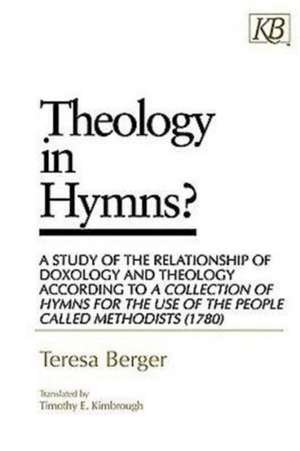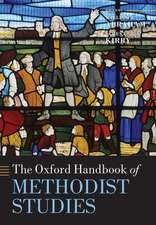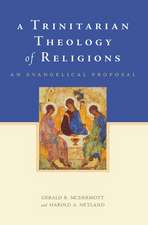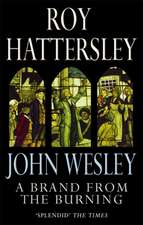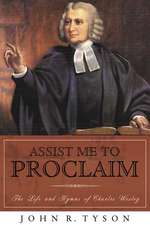Theology in Hymns?
Autor Teresa Bergeren Limba Engleză Paperback – 31 oct 1995
Preț: 154.84 lei
Nou
Puncte Express: 232
Preț estimativ în valută:
29.64€ • 32.20$ • 24.91£
29.64€ • 32.20$ • 24.91£
Carte disponibilă
Livrare economică 31 martie-14 aprilie
Preluare comenzi: 021 569.72.76
Specificații
ISBN-13: 9780687002818
ISBN-10: 0687002818
Pagini: 224
Dimensiuni: 153 x 229 x 17 mm
Greutate: 0.38 kg
Editura: Kingswood Books
ISBN-10: 0687002818
Pagini: 224
Dimensiuni: 153 x 229 x 17 mm
Greutate: 0.38 kg
Editura: Kingswood Books
Textul de pe ultima copertă
Of the many hymnbooks published by John and Charles Wesley, the most important was A Collection of Hymns for the Use of the People Called Methodists (1780). Taking this volume as a case study and concentrating on the Charles Wesley hymns included in it, Teresa Berger clarifies the relationship between the language of doxology of worship and praise of God and the substance of theological reflection. She identifies the central theological themes and emphases in this body of hymnody, and raises the question of how theology can be embodied in hymns. Central to her argument is the claim that the theological analysis of doxological material is possible only when it takes care to recognize and safeguard the characteristics, the criteria of authenticity, and the tests of authority and legitimacy peculiar to doxological language. Part One of the book sets the whole discussion within the context of a renewed interest in doxological and liturgical traditions across Christianity by showing how the relationship of doxology and theology is an important topic of theological discussion in Roman Catholic, Protestant, Orthodox, and ecumenical circles. Part Two is devoted to a thorough theological analysis of the central themes and images of the 1780 Collection. Part Three attempts to clarify the nature of doxology in its relation to theology.
